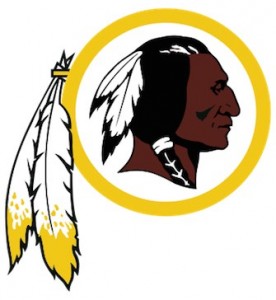 The U.S. Supreme Court agreed last week to review a Federal Circuit ruling that held unconstitutional a law prohibiting registration of trademarks that “may disparage” people or groups. In a case involving an Asian-American dance band’s bid to register its name THE SLANTS as a trademark, the court will consider whether the bar on registering disparaging marks in Section 2(a) of the Lanham Act, 15 U.S.C. § 1052(a), violates the First Amendment guarantee of free speech.
The U.S. Supreme Court agreed last week to review a Federal Circuit ruling that held unconstitutional a law prohibiting registration of trademarks that “may disparage” people or groups. In a case involving an Asian-American dance band’s bid to register its name THE SLANTS as a trademark, the court will consider whether the bar on registering disparaging marks in Section 2(a) of the Lanham Act, 15 U.S.C. § 1052(a), violates the First Amendment guarantee of free speech.
The Court granted the U.S. Patent and Trademark Office’s petition for writ of certiorari in Lee v. Tam, No. 15-1293, which seeks to overturn an en banc decision of the U.S. Court of Appeals for the Federal Circuit striking the “may disparage” provision of Section 2(a) of the Lanham Act, 15 U.S.C. 1052(a) as unconstitutional. In the meantime, the Court is expected to rule soon on the Washington Redskins’ cert petition in Pro-Football, Inc. v. Blackhorse, No. 15-1874, challenging a decision of the Eastern District of Virginia upholding the PTO’s cancellation of the REDSKINS trademarks under that same provision.
Section 2(a) prohibits registration of marks that consist of or comprise “immoral, deceptive, or scandalous matter; or matter which may disparage or falsely suggest a connection with persons, living or dead, institutions, beliefs, or national symbols, or bring them into contempt, or disrepute.” The government’s petition in Tam only presents the question whether the “may disparage” violates the First Amendment’s Free Speech Clause – but it may have implications for whether “immoral” or “scandalous” marks can be registered.
“Reclaiming” a Stereotype the Government Finds Disparaging
The Tam case began when the PTO refused The Slants’ front man Simon Tam’s application to register the band’s name as a trademark, deeming it a slur that “may disparage” Asian-Americans. Tam argued that he did not use it disparagingly, but rather to “reclaim” and “take ownership” of Asian stereotypes. In his appeal of the PTO’s refusal, Tam argued the disparagement clause imposes a substantial burden on speech with a particular message.
Because the disparagement clause does not prohibit registration of marks that express a positive or neutral view of a person or group, and only prohibits marks which the government determines present a negative view, Tam argued, it lets the PTO discriminate against speech, in violation of the First Amendment. Tam also argued that in the 70 years since the provision was enacted, the PTO has “produced a bewildering array of decisions granting or denying registration seemingly at random” – rendering the law unconstitutionally vague.
Indeed, the PTO in 2015 granted a trademark registration for THINK ISLAM, but four years earlier denied an application for STOP THE ISLAMISATION OF AMERICA in connection with “providing information regarding understanding and preventing terrorism,” with the Examining Attorney arguing that “Muslims are likely to perceive [the mark] as an indictment against all things affiliated or associated with Islam.”
[Supreme-Court]
The Federal Circuit Holds the Prohibition on “Disparaging Trademarks” is Unconstitutional
As we have discussed elsewhere, the Federal Circuit, sitting en banc, ruled in December 2015 that the Lanham Act’s disparagement provision allows the PTO to discriminate against some trademarks but not others based on the “idea or message expressed.” Because a trademark’s “expressive character,” rather than its commercial purpose, triggers a Section 2(a) rejection, the court found that the law lets the PTO engage in content and viewpoint-based discrimination against speech prohibited by the First Amendment. In doing so, it overruled its three-decade old precedent holding the section constitutional in In re McGinley, 660 F.2d 481 (C.C.P.A. 1981)
In its December 2015 opinion, the Federal Circuit held that denying registration can burden speech, because registration bestows “significant and financially valuable benefits upon mark-holders.” It also rejected the PTO’s argument that a federal registration is “government speech” amounting to an endorsement of the mark’s message. It said “The fact that COCA COLA and PEPSI may be registered trademarks does not mean the government has endorsed these brands of cola, or prefers them over other brands.”
The Federal Circuit also disagreed with the PTO that trademark registration is a “government subsidy” program in which the government can condition participation on a particular message because the benefits of registration are not monetary, and because the PTO is mainly self-funded by user fees, not taxpayer dollars.
A Different Court Upholds Cancellation of REDSKINS Trademarks as Disparaging; The Team Seeks Review
Meanwhile, the years-long effort of a group of Native Americans seeking to cancel the Washington football team’s REDSKINS trademarks could soon arrive at the Supreme Court. The team’s petition for certiorari in Pro-Football, Inc. v. Blackhorse asks the Court to overturn an Eastern District of Virginia decision that upheld the PTO’s cancellation of the team’s trademark registrations as disparaging to Native Americans.
The district court’s ruling in Blackhorse, discussed here last summer, also examined whether the Lanham Act’s disparagement clause chills speech. The court held in July 2015 that the clause does not implicate the First Amendment, and that federal trademark registration program constitutes “government speech.” Notably, the court relied on the 1981 decision of the Federal Circuit’s predecessor court in In re McGinley, which held that the PTO’s refusal to register an applicant’s disparaging trademark does not infringe the mark owner’s First Amendment rights because no conduct is proscribed and no tangible form of expression is suppressed.
Mark owners, the Virginia district court noted, retain the ability to offer their goods and services under any mark they choose regardless of registration, but the government remains free to exercise “editorial discretion” over what it publishes in the Official Gazette of the PTO and in the Principal Register of trademarks. It based its reasoning on the Supreme Court’s 2015 decision in Walker v. Texas Division, Sons of Confederate Veterans, analogizing federal trademark registration to Texas’s to control messages displayed on state license plates, holding those plates to constitute government speech.
The Washington team appealed the Eastern District’s decision to the U.S. Court of Appeals for the Fourth Circuit. But the en banc Federal Circuit’s subsequent rejection in Tam of Eastern District of Virginia’s “government speech” rationale and its overruling of the McGinley prompted the team to try to bypass the Fourth Circuit and have the Supreme Court decide its case along with Mr. Tam’s. The Supreme Court is expected to rule on the team’s petition for certiorari soon.

![[IPWatchdog Logo]](https://ipwatchdog.com/wp-content/themes/IPWatchdog%20-%202023/assets/images/temp/logo-small@2x.png)


![[Advertisement]](https://ipwatchdog.com/wp-content/uploads/2024/04/Patent-Litigation-Masters-2024-sidebar-700x500-1.jpg)

![[Advertisement]](https://ipwatchdog.com/wp-content/uploads/2021/12/WEBINAR-336-x-280-px.png)
![[Advertisement]](https://ipwatchdog.com/wp-content/uploads/2021/12/2021-Patent-Practice-on-Demand-recorded-Feb-2021-336-x-280.jpg)
![[Advertisement]](https://ipwatchdog.com/wp-content/uploads/2021/12/Ad-4-The-Invent-Patent-System™.png)






Join the Discussion
No comments yet.